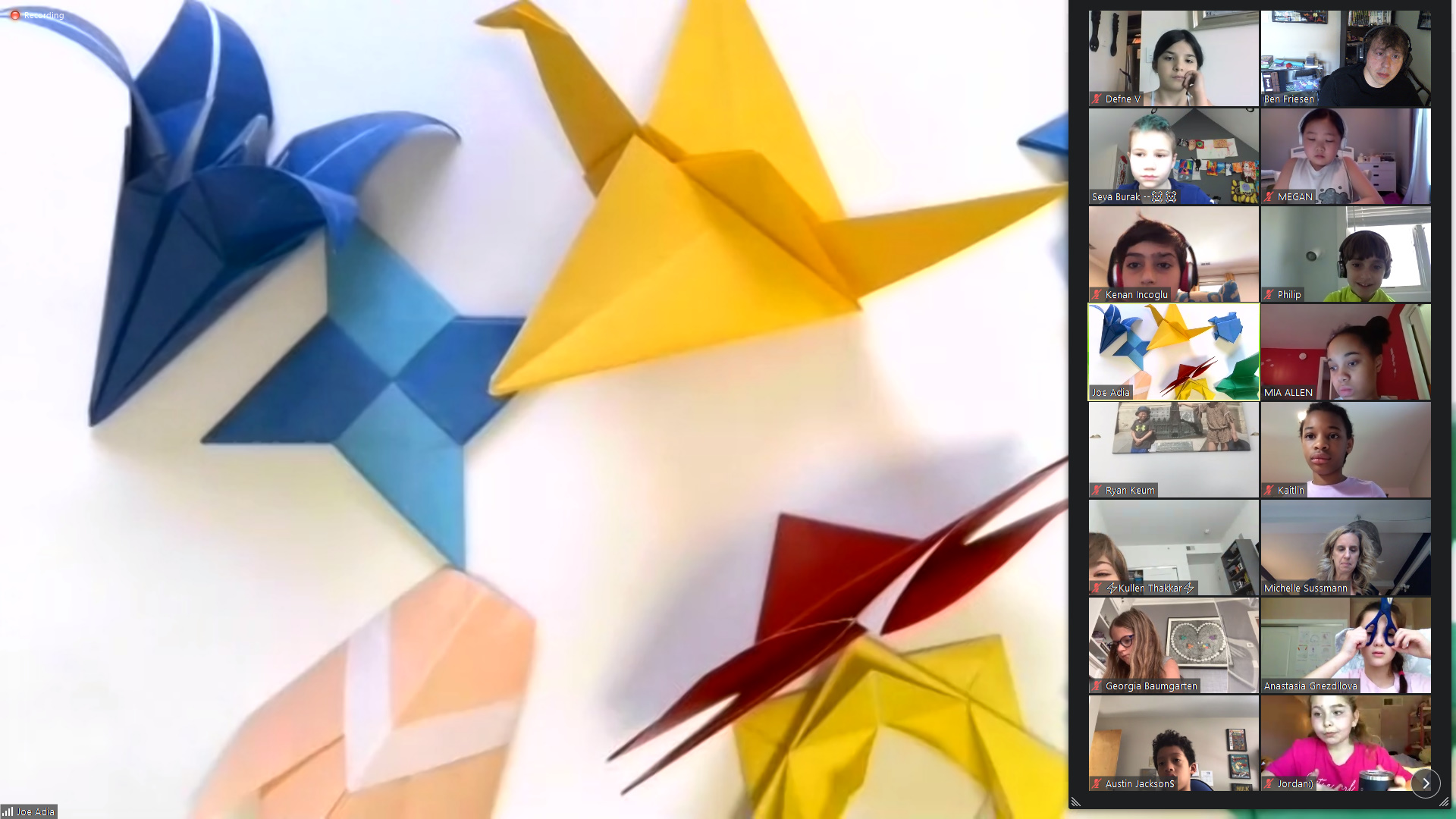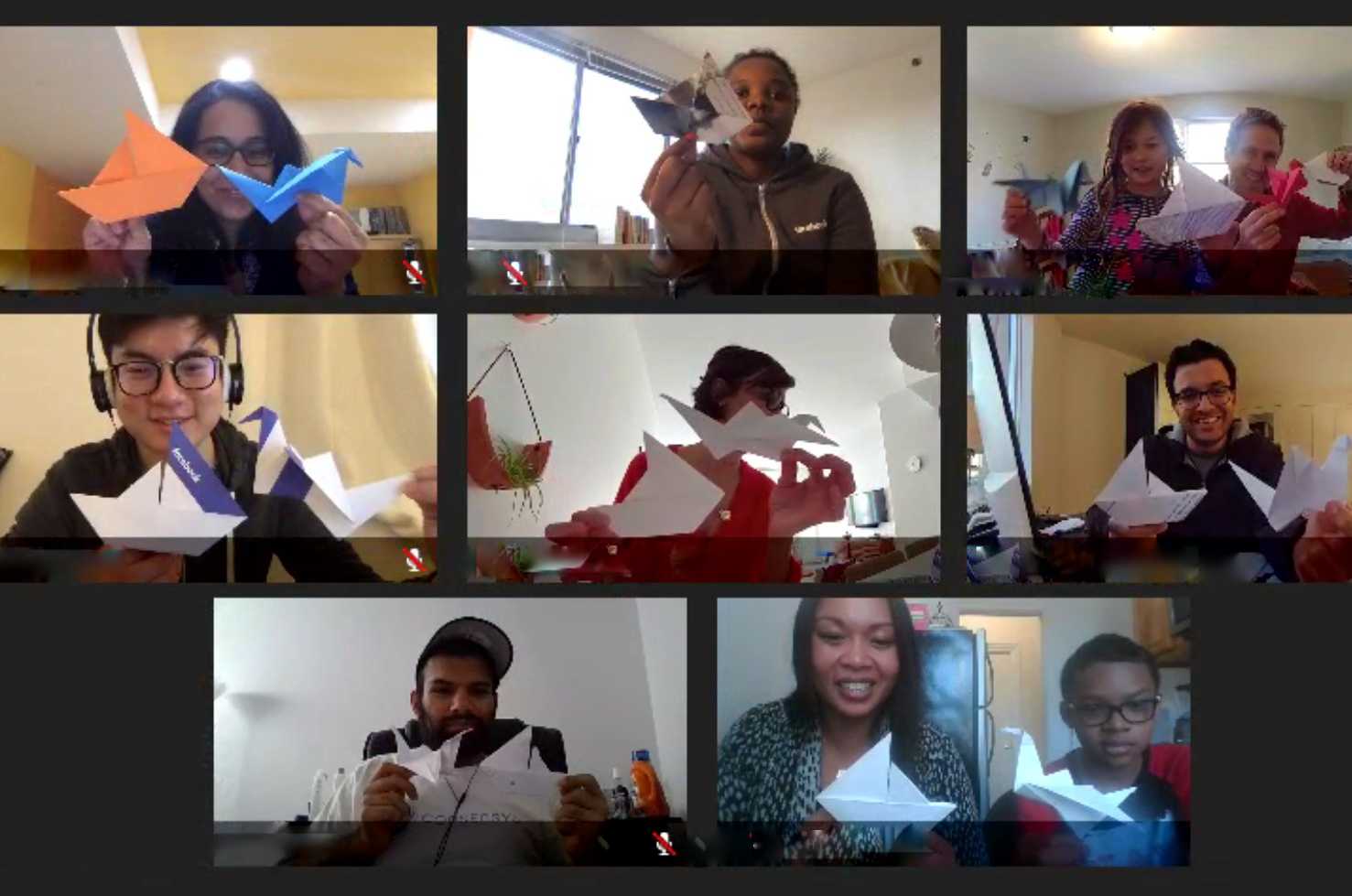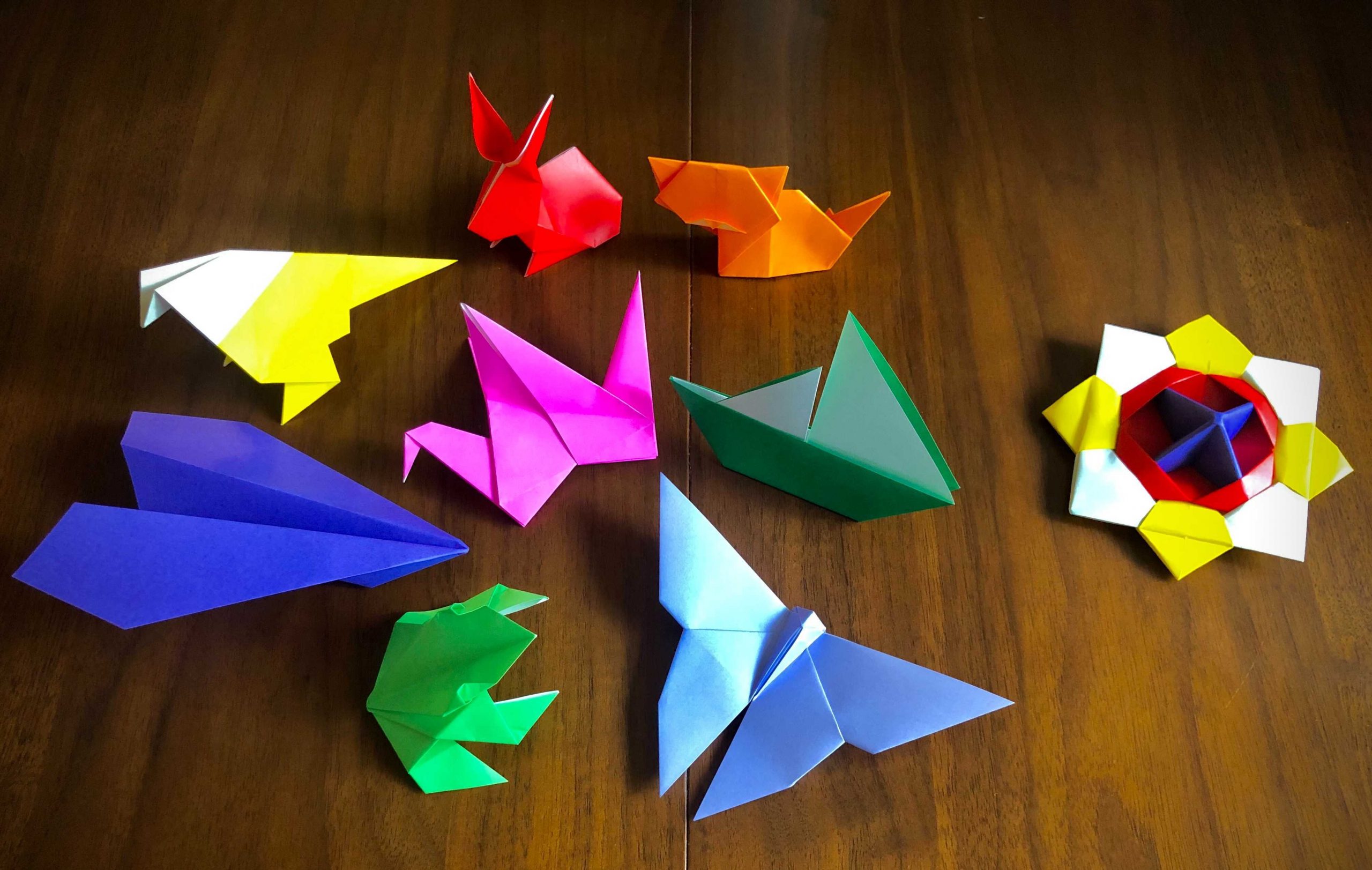One of the best things about origami is that everyone can learn how to fold models, no matter the skill level and no matter the location. If you're looking for a unique way to have fun while stuck at home, or in person- Taro's Origami Studio is here to help!
"Okay, that was seriously so fun and awesome! [Our teacher] was a rockstar! I was getting private messages from people throughout the whole class saying “wow, [this] is great”... It was perfect. We have 3 other teams in our company and I would not be surprised if they...ask for your info. Thank you, thank you, thank you!"
- Patricia
(Education-First)
Virtual Corporate Origami Classes are Perfect for:
- Entertaining your staff
- Team-Building
- A unique break from work
- Spreading origami around the world
What to Expect
During our one-hour virtual classes, Taro’s Origami Studio staff will give a short talk about the history of origami and why it is important today. Students will then have a chance to learn some origami for themselves. With our trained staff each student will be able to personally create origami that they can keep, using nothing but paper found around your house.Here is a menu of example models that we have had success teaching recently. In a regular 60 minute class we can teach several of these easier models.
Scheduling
- Virtual classes be scheduled anytime between 9:00-11:00 am on Tuesday, Wednesday, Thursday or Friday; however, we can accommodate special requests
- For more info and to book, please click here to Book Online or email Ben@tarosorigami.com
Pricing
- Virtual Classes start 400$ an hour for a class up to 20 people.
- We use 2 teachers for classes over 20 people, but from there can accommodate as many people as your platform allows.
- No fees for teachers, camp counselors, or chaperons
- A unique Zoom class code will be sent to you if booking a virtual class.
Paper
For our online classes, participants are encouraged to have origami paper, but it isn't required. We have 3 basic options to provide your team with a 65 sheet pack of our traditional Japanese origami paper:
- Option 1- We can ship out paper for each of your participants. We would need their address (anywhere in the lower 48 United States) and email (to provide a tracking number) and the cost is 15$ per person.
- Option 2- We can create a unique discount code on our website that you can pass along to everyone in the event. This way the participants need to input their delivery information, ad then we can charge you later for the number of coupon codes used.
- Option 3- We can mail you a big box of paper packs at a discount. This is the cheapest option, because you get cheaper paper and pay less shipping, but it would mean that the individual packs still need a way to get to the participants.
If you would like to also order paper from us for your group event or lesson, please allow up to 2 weeks for delivery to all participants.
Why Origami?
Behavioral skills: Origami is an example of “schematic learning through repeatable actions”. To be successful, the student must watch closely and listen carefully to specific instructions and then carry them out with neatness and accuracy. For many, this way of learning engenders a patience that leads to pride in one’s work, the ability to focus energy, and increased self-esteem.
Cooperative Learning: Origami is well-suited to working with large classrooms and in a multi-age setting. Paper folding tends to eliminate the status associated with age and often younger children can be in a position to teach the older ones. Many people report that children who do not “star” in other places are often quick to learn origami and help their classmates master the steps.
The Bridge to Math: Transforming a flat piece of paper into a three-dimensional figure is a unique exercise in spatial reasoning. What happens when you unfold an origami model? Can you see the symmetry in the crease patterns? Manipulating paper with their hands helps children learn concepts that may otherwise seem abstract. In addition, paper folding allows students to create and manipulate basic geometric shapes such as squares, rectangles, and triangles.
Cognitive Development: Through the actual folding, children use their hands to follow a specific set of steps in sequence, producing a visible result that is at once clever and pleasing. The steps must be performed in a prescribed order and with a fine attention to detail to yield a successful outcome – an important lesson not only in origami, but in life.
Multi-cultural Awareness: Rooted in Asia, origami reflects the ingenuity and aesthetics of Japanese culture. By participating, students gain appreciation of a different culture, perhaps opening a doorway to further exploration and increased tolerance.

Papercraft Lantern Event @ NYC Tiffany Flagship

Origami New Year @ BCG

Group Origami @ Rockefeller U

Agios Origami Group Lesson in Boston

Teaching @ OUSA Convention
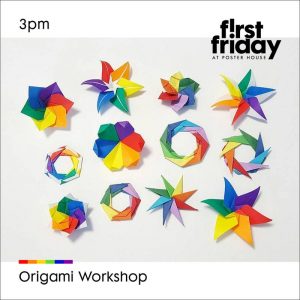
Origami Lesson @ Poster House Museum

Rimowa Origami Bouquets by Taro’s
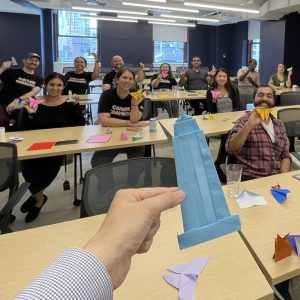
All-New Empire State Model for LinkedIn

Origami Field Trip 2023 at Taro’s Origami Studio in Brooklyn, NY.

Japan Village Store
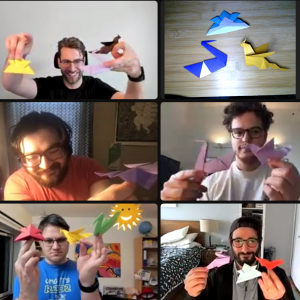
Online Lessons for VMWare

AAPI Month @ Taro’s Origami

BCG Origami Event
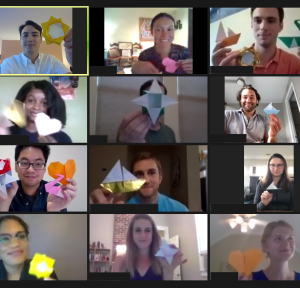
Virtual Corporate Folding Party



